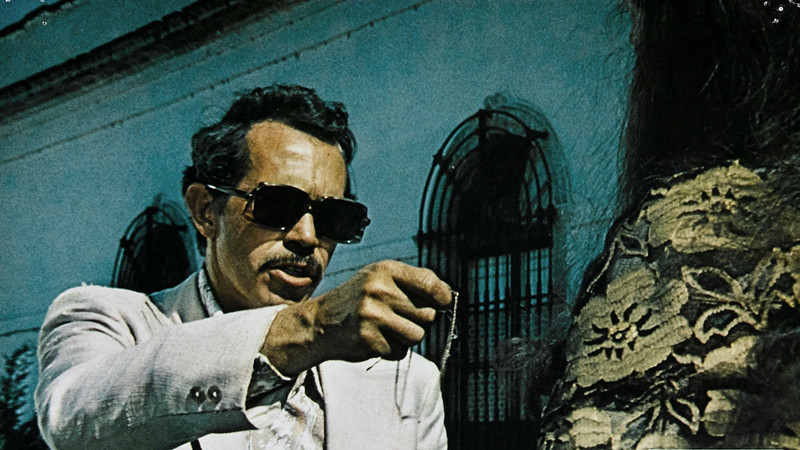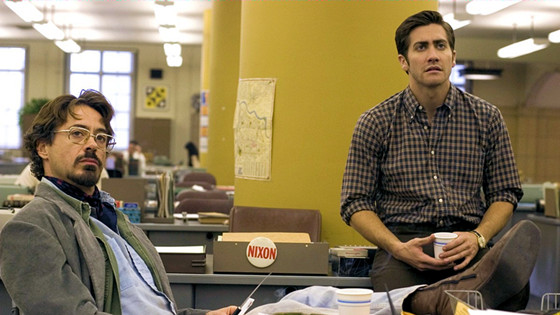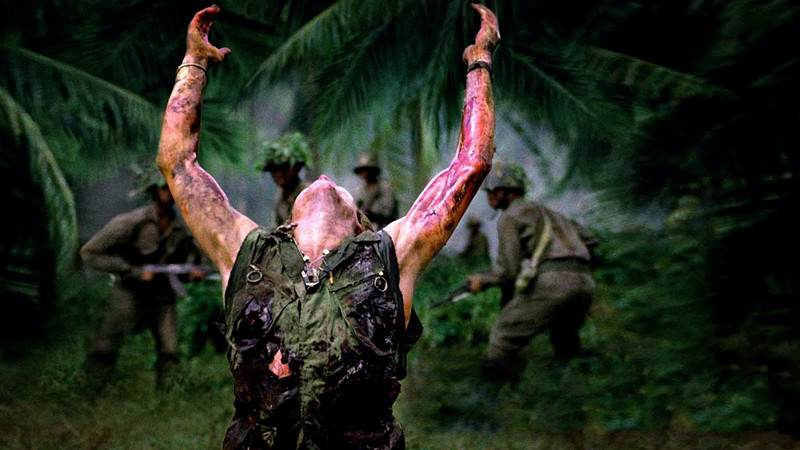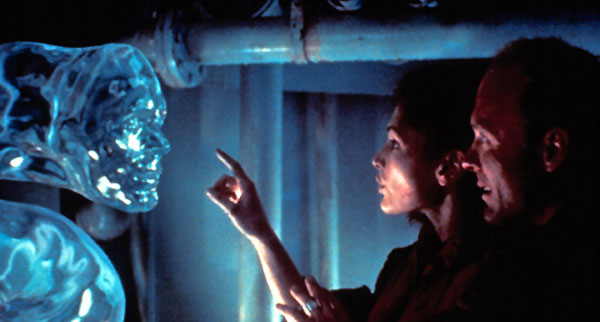Everyone’s heard about the cliche of the genius artist and his troubling personality. These figures have a certain mythology about them, their eccentricities become our fascination. Some would even suggest that a certain antagonistic personality is required to create high art.
It’s often a cliche when we find out that a certain artist was difficult to be around with. It seems even less surprising when it comes to filmmakers, since they require working with a lot of people. The lonely writer can be with himself but a filmmaker has to be out in the open, his frailties exposed on set.
In this list we are going to take a look at twelve great filmmakers who have made extraordinary contributions to cinema yet are notorious for their conflicting nature. The purpose of this article is not to demonize them or to make statements about what kind of personality is necessary to create a great film.
Naturally, if you are not there during the making of these films, it’s hard to judge whether the director had legitimate reasons for their actions or not. The viewer inevitably must separate the film from the artist, or draw a line somewhere.
The point is also to not romanticize their character, enable the myth about the troubling artist. My point is merely to point out that they were as human as the rest of us. Like all those we idolize or all those we consider Gods among men, not one of them has ever been able to escape the nature of their humanity.
12. Sam Peckinpah: The Man’s Man
If there’s one personification of the masculine filmmaker, the honor has to go to Sam Peckinpah. He could be considered cinema’s Hemingway because like Hemingway, he liked to hunt, he was a hard-drinker, loved women but had trouble keeping one and he was hard to get along with.
Affectionately nicknamed ‘Bloody Sam’ after the release of his classic The Wild Bunch, Sam already had a track record of being hard to work with. So much so that he was even blacklisted after the filming of Major Dundee, due to the various conflicts on set.
In Sam’s childhood he already showed to be a rebel, skipping school to hang out among the Grandfather’s ranch with traditional cowboys. He joined the Marine corps and though never being in combat, has witnessed someone being gunned down in World war 2 during the Japanese disarmament in China.
This would inspire his portrayals of violence later in his films; ”…killing a man isn’t clean and quick and simple. It’s bloody and awful. And maybe if enough people come to realize that shooting somebody isn’t just fun and games, maybe we’ll get somewhere.”
Like Cormac McCarthy’s great work of literature, Sam had no interest in romanticizing the west, he knew all too well the savagery that lurked under the brooding sun. Sam didn’t believe in man as the noble savage; ”the whole underside of our society has always been violence and still is.
Churches, laws–everybody seems to think that man is a noble savage. But he’s only an animal. A meat-eating, talking animal. Recognize it. He also has grace and love and beauty. But don’t say to me we’re not violent.”

Proclaiming that he couldn’t direct when he was sober, his alcoholism along with his future drug abuse would eventually cause his downfall. Though the Seventies are often proclaimed as a safe haven for edgy filmmakers, it might have given him too much freedom to be himself. There are also rumors of him having suffered from manic-depression, his constant swing from being calm and softspoken to physically aggressive might have explained this.
With the dawn of Spielberg/Lucas era of filmmaking, Sam lost his importance. The audience weren’t in the mood for grit, they wanted to forget the Vietnam era of before. People wanted popcorn entertainment, something Sam wasn’t capable of doing. He would never again reach the height of his earlier classics and his last film The Osterman Weekend was a critical failure.
Warren Oates copied his character in Bring Me The Head of Alfredo Garcia on Sam Peckinpah himself, right down to borrowing his sunglasses. Just like The Wild Bunch, the main character has a chance to leave in peace, but opts instead to die in a blaze of glory. Sam’s death would not be so glamorous; he died of the young age of 59 of heart failure.
11. David Fincher: The Puppet Master
When Robert Downey Jr. claimed he’s the perfect person to work with David Fincher because ”I understand Gulags”, one gets the sense that David Fincher is a little hard to work with. Robert, like many of the actors David worked with, had to do innumerable retakes in order to satisfy the director.
Fincher is not interested in being liked and he doesn’t mind letting his actors suffer until he gets what he wants. This has lead to an infamous incident where Downey Jr. left numerous jars of urine around the set to annoy the director. The message here was that they had to do so many retakes that they didn’t even have time to go to the bathroom.
Jake Gyllenhaal had said that Fincher ”paints with people. It’s tough to be color.” This same actor was nearly pushed to tears due to the endless retakes. R. Lee Ermey whom Fincher worked with in Seven said that Fincher doesn’t want actors, he wants ”puppets.”
But it’s not only in the acting department that Fincher is very demanding; Fincher is known for micro-managing everything during the making of the film. Before Fincher enters the movie set, he knows what to expect from his crew. Everything needs to go his way and he has very little interest in suggestions and would sometimes crudely dismiss them.
Filmmaking is both his passion but it’s also a serious matter, as Fincher himself said; ”when you go to your job, is it supposed to be fun or are you supposed to get stuff done?”

His perfectionism might have been caused by his experiences during the making of Alien 3, his first feature where like Sam Peckinpah, he clashed with the producers. Ever since then, he wanted complete control over his features.
The film is considered a stain to his respectable film repertoir, but no one is harsher about it than he is himself; ”your point of view is as valid as any member of the audience. But it’s different when your name is on it, when you have to wear it for the rest of your life….”
Maybe it’s this fear that pushes him to be such an agonizing perfectionist. It might be argued that its not necessarily a bad thing, as one of the greatest directors of all -Kubrick-is infamous for this.
Remember the point of this article is not to judge the director. The quality of his work stands out, there’s no question that Fincher is an incredibly talented director. But working with a control freak is never easy and one has to wonder whether it’s worth making the people around you suffer that much in order to satisfy your creative vision…
10. Oliver Stone: The Embittered Veteran
During a party, Ian McKellen walked up to Oliver Stone and asked him what he thought of the recently released Richard The Third, to which Oliver Stone coldly replied; ”I didn’t like it,” and then promptly walked away.
Those who have worked with Oliver Stone know he doesn’t mind hurting people’s feelings if there is a purpose to it. Many actors have mentioned how hard he can push them just to get a desired performance out of them.
It doesn’t matter what their status is, if Oliver doesn’t like a take, he will tell you so. He has told Michael Douglas flat out (after watching the rushes of Wall Street) that it looked like he’d never acted before, he told Eric Bogosian (the star of Talk Radio) that if he didn’t do a better performance, the film will be a catastrophic failure.
Numerous actors he’s been called a pig by Sean Penn and a fascist by Richard Dreyfuss. Needless to say, when it comes to making films, Oliver Stone isn’t in the business of making friends.

Being an army veteran, having seen some serious action in Vietnam (and being awarded both a bronze and a purple heart), might explain his seriousness towards filmmaking. When he’s making a film, he’s on a mission to tell the truth, to expose it as best he can. Maybe growing up with his conservative father, with a William F. Buckley’s esque view of America, left him feeling deceived.
In his search for truth, he has also been honest in his dabbling of drugs, finds psychedelics particular useful in the exploration of one’s psyche. One could say that the embittered director is walking his own yellow brick, reaching for the wizard behind the curtain to expose mechanics of his deception- the true forces behind the false dream.
Though many performers have said unkind things about him, many of them have returned to his sets. Some considered his tactics to be very useful in order to push themselves for a better performance. Whether such performances could be brought out through kinder ways is a completely different issue, maybe not even relevant in the grander scheme of things- because when you’re fighting a war to tell the truth, you’re not there to make friends.
9. James Cameron: The Self-proclaimed King of the World
James Cameron doesn’t refer himself as a perfectionist, he instead refers himself as a ”rightist. I do something until its right.” Like many directors on this list, Cameron is infamous about the testing the endurance of his cast and crew. Again, many would proclaim that this pushes you to create your best work. But his reputation keeps coming back to haunt him and various actors have expressed their displeasure with working with him.
Ed Harris, the star of The Abyss, refused to promote the film after its release due to the horrible work-environment. His Co-star Mary Elizabeth Mastrantonio, had it particular difficult during a scene where her character is revived after having nearly drowned.
The scene required her topless and being slapped for quite some time, prompting her to eventually get up and scream; ”We’re not animals!” and walk out of the set.
Even another co-star of the film, though very positive about working with him (and has worked with him on numerous occasions) said that Cameron ”is not real sensitive when it comes to actors and their trailers.”
The author Orson Scott Card, who worked closely with Cameron on the film’s novelization, has stated that Cameron, ”made everyone around him miserable, and his unkindness did nothing to improve the film in any way, nor did it motivate people to work faster and better.”
Cameron’s obsessive antics weren’t just during the set of The Abyss, even when Titanic put Kate Winslet on the map, she has stated to never want to work with Cameron again after her experiences on set. During the filming of Avatar, the director reportedly nailed cell-phones to a wall as punishment for unwanting ringing during the production.

On the subject of James Cameron though, it’s good to point out that Cameron is not only referred to as one of the most successful filmmakers of all time. One could mention career in environmentalism, such as when he called out by Washington to discuss solutions about the 2010 Deepwater horizon oil spill.
His career as a deep-sea explorer, famously being the first man to ever dive into the deepest part of the ocean in a One-man craft. This along with being credited as having changed special effects in cinema forever and having directed the two highest grossing films one after another. There’s no denying that his career is absolutely legendary.
One of his ex-wives however, the famed star from Cameron’s Terminator films, called the director ”a controlling jerk,” and has been very open about the troubles during their marriage. It would be unfair to judge his complete character by the tall-tales of an ex-wife, but one has to remember that Linda was his fourth wife.
He eloped from one wife to another through several of his films, he became closer to Linda during the filming of Terminator 2 while he was married to the now famed director Kathryn Bigalow, but left Linda with Suzy Amis whom he was working with in Titanic. Linda has told stories about his temper tantrums, proving that his reputation extends not just with his work life but also his life at home.
Cameron has been called an ”innovative genius” by numerous people and such a label is not easy to keep up with. Throughout his career he’s always looking for a challenge, pushing technology to the brink. His sense of self-importance led him to state that he’s more interested in ”saving the world,” such a preposterous statement proves that fame can go through anyone’s head.
One could say that Cameron’s ego must be matched by the product he delivers to the audience. Being ”King of the world” as he proclaimed himself to be to be during his 1998 Oscar speech, is not easy- and working in his kingdom, is not easy either.